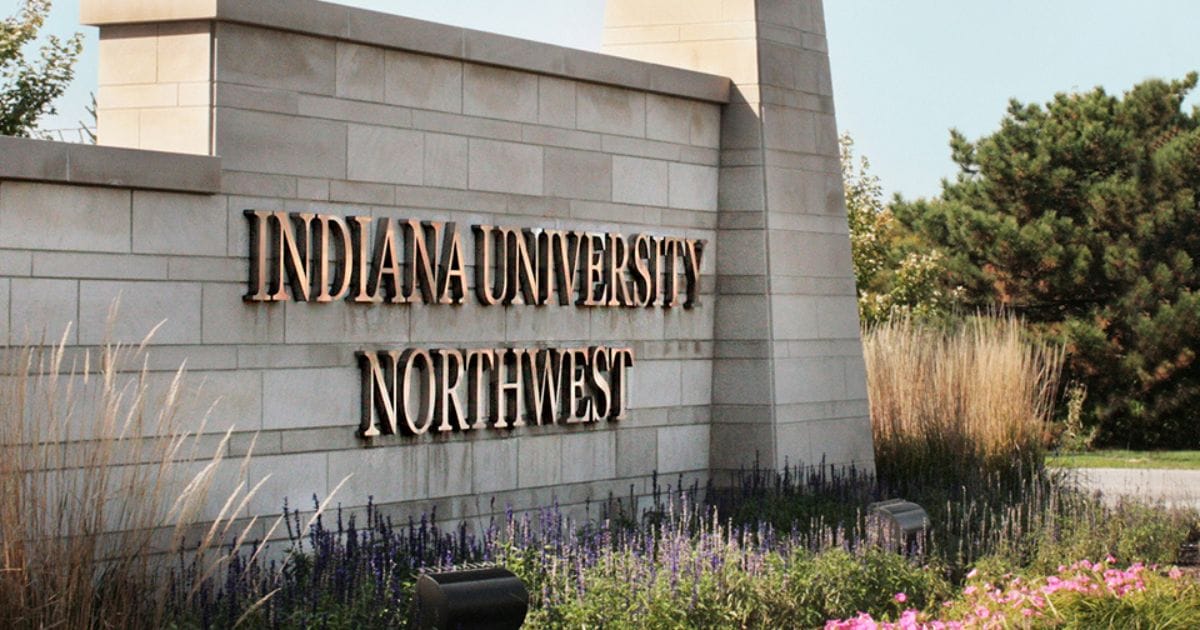Middle school students get a fast track simulation of college life
Kids College ended June 16 for 55-60 middle school students who decided to spend the first part of summer vacation inside classrooms at Indiana University Northwest.
IUN re-launched Kids College as a free program this summer, after a pause in 2016 put the program on hold.
It’s also a new format the Gary campus is piloting that will spread to 3 other regional Indiana University campuses in the next two years. Kids College 2023 is a simulation of college life – from applying to the college, being accepted, choosing a field of study, and a fast track course completion in 2 weeks.
Classes started on June 5 and ended June 16. Instead of a graduation ceremony, families were invited to the last session on Friday afternoon to see the students demonstrate what they had learned.
Kids College offered five courses or tracks, each connected to one of the universities schools and colleges – College of Arts and Sciences, the College of Health and Human Services, the School of Business and Economics, the School of the Arts, and the School of Education. The campus is also host to IU School of Medicine-Northwest-Gary.
Students in the medical track have been learning how to build a prosthetic to help Kona, a 4.5 lb. Yorkie in need of a front leg.
Student Charles Dees described a process of trials and errors. “At first it was too small. The second time it was too short. We kept trying. The robotics class made them using their 3D printers. And now it’s working. She’s getting used to it and putting pressure on it.”
“Our success is remarkable, because most prosthetics we see on dogs are on the hind legs,” said School of Education associate professor Anita Benna, who led the class. “The students learned about muscles, tendons, and bones. Faculty from medicine, nursing, chemistry, and physics visited the class and gave us advice on constructing Kona’s new leg.”
Students in the business track have created four start-up businesses with websites and commercials to be presented to a panel of local ‘Shark Tank’ judges.
In the robotics track, students worked on robots to help pick up trash on neighborhood streets and clean up beaches along Lake Michigan shores. The robots can also detect and pick up metals.
Students participating in the coding track learned how to code, but also how to create an app that will help solve a local problem. They chose school lunches. They designed an app to allow students to give input on their choices for school lunches.
In the theater and arts track, students performed a group interpretive dance and a 3-minute solo. The class was led by Mark Spencer of the West Side Theater Guild and Larry Brewer of the South Shore Dance Alliance. “The students were psyched out at first because they had never learned choreography and never been in a dance studio,” said dance instructor Symone Denwood. “The progress from day one until today is immeasurable. We’re really proud of them and I know they’re proud of themselves as well,” said co-instructor Briana Arthur.
Ellen Szarleta, an SPEA (School of Public and Environmental Affairs) professor coordinated the pilot program, designed to give students experiences in something they had not been exposed to previously. Next year, Szarleta hopes to add a government and civics section.
Re-establishing Kids College also connected the students and their families to Indiana’s 21st Century Scholars Program, Szarleta said. The state pays up to four years of undergraduate tuition and support to income-eligible students who attend colleges or universities in Indiana that participate in the program.
About 90% of students in Kids College would be eligible for 21st Century scholarships if they go on to an Indiana college or university after high school graduation.
An Eli Lilly grant funded Kids College. “Part of the funds will kick start the university’s strategic initiative to better connect with the state’s K-12 schools. The Office of School Partnerships was created to figure out who we are and who we’re not connected to,” Szarleta said.
Nationwide, Indiana ranks low in the number of its residents who obtain post-high school education.






